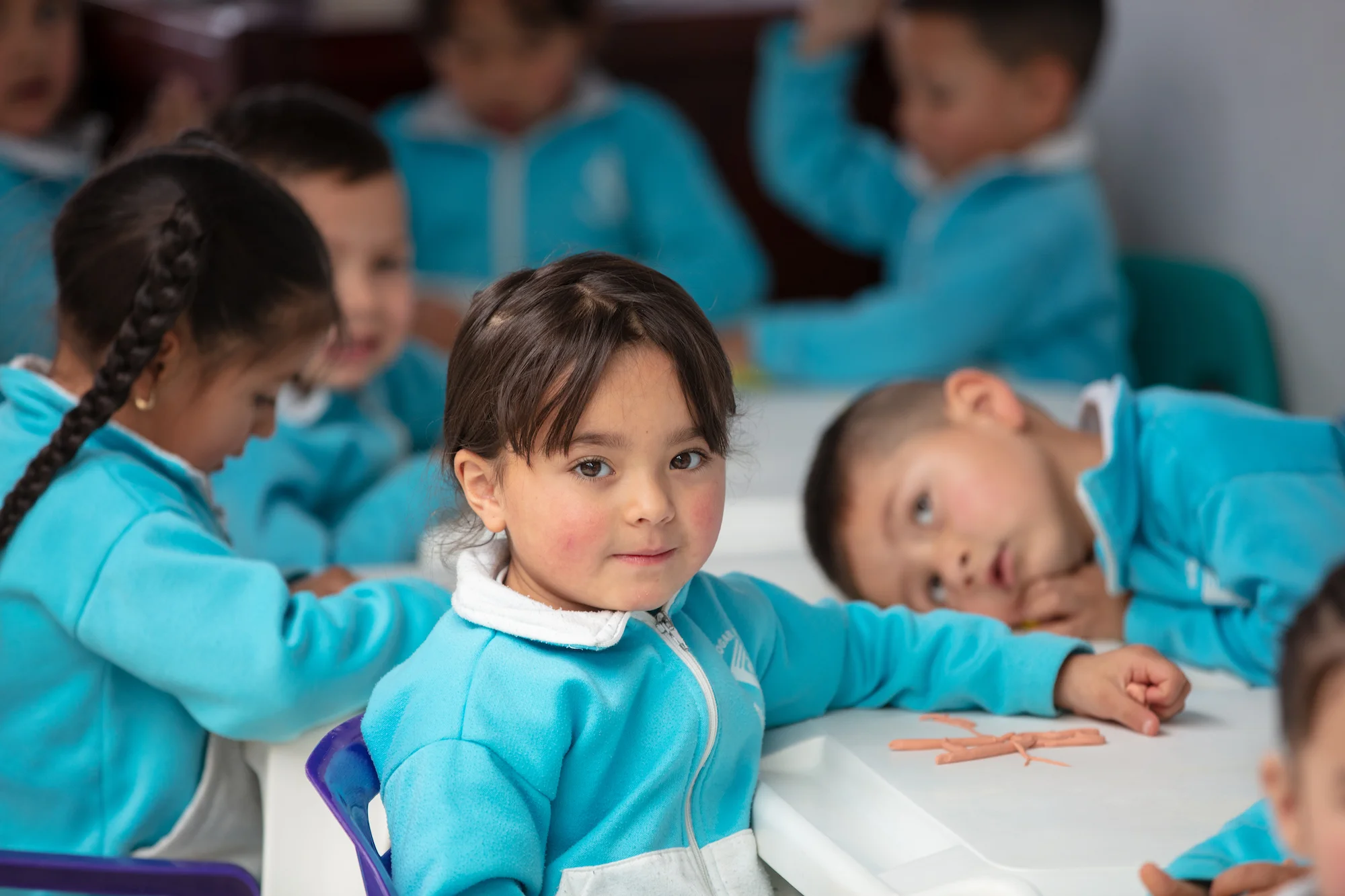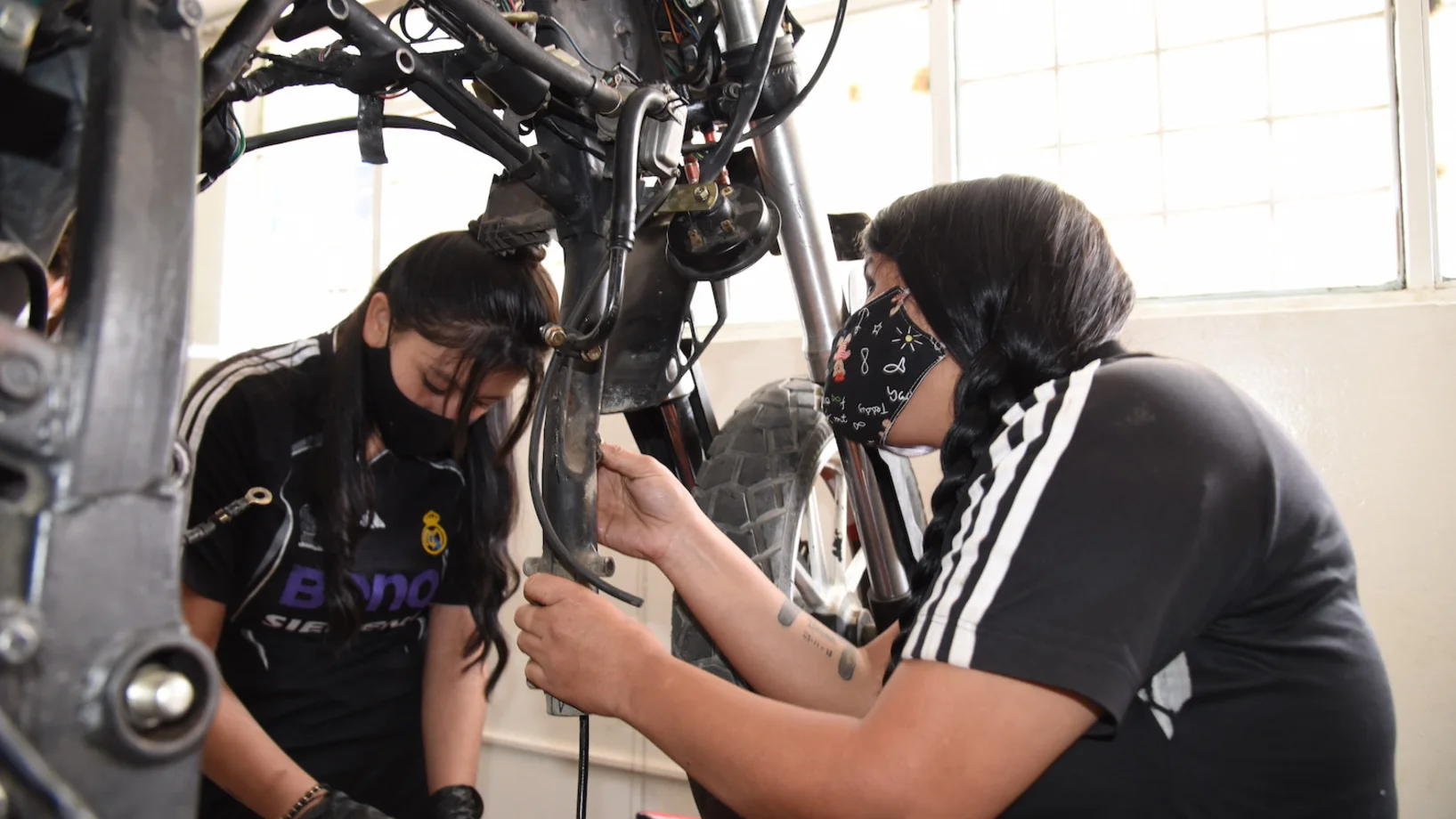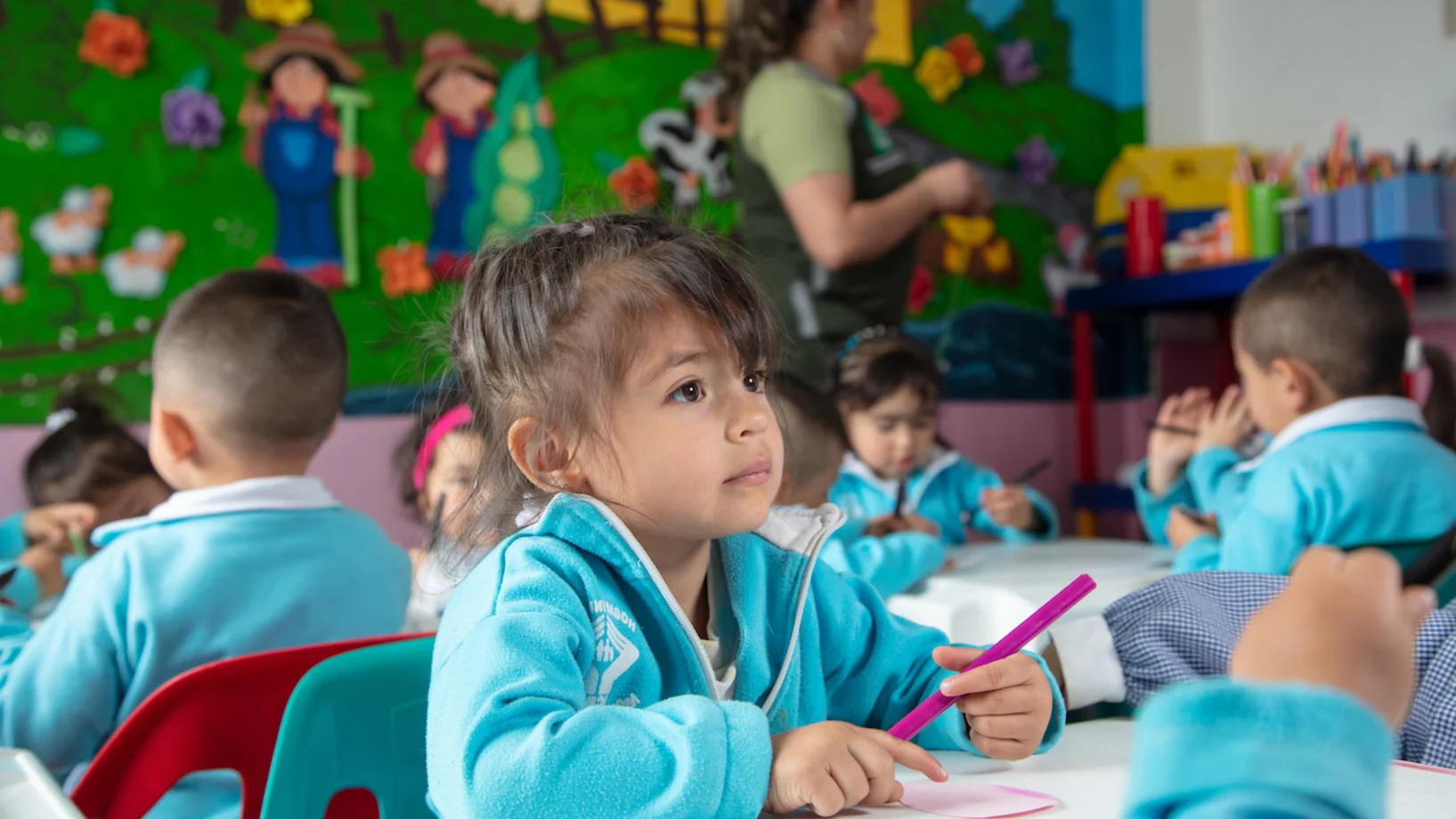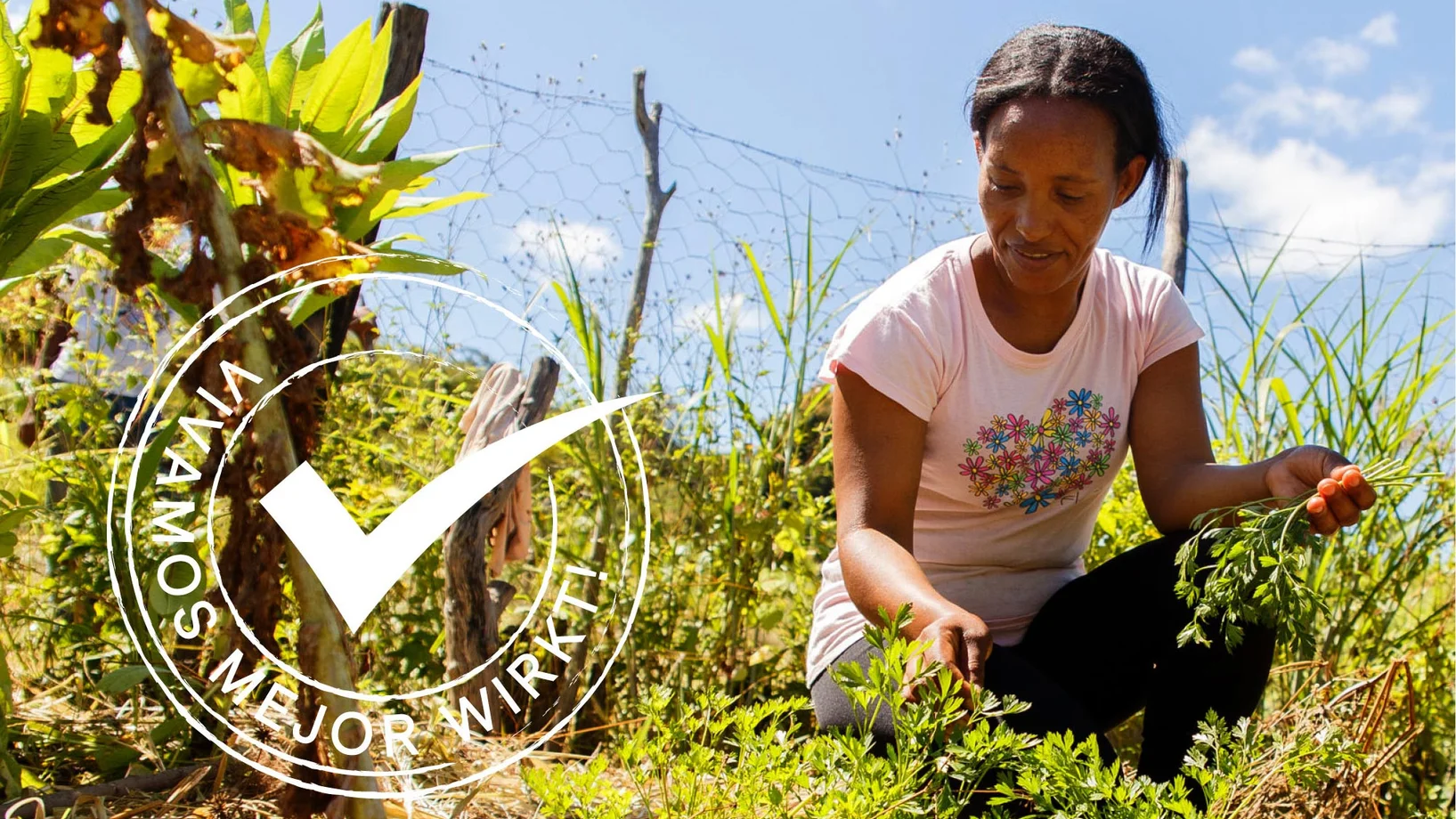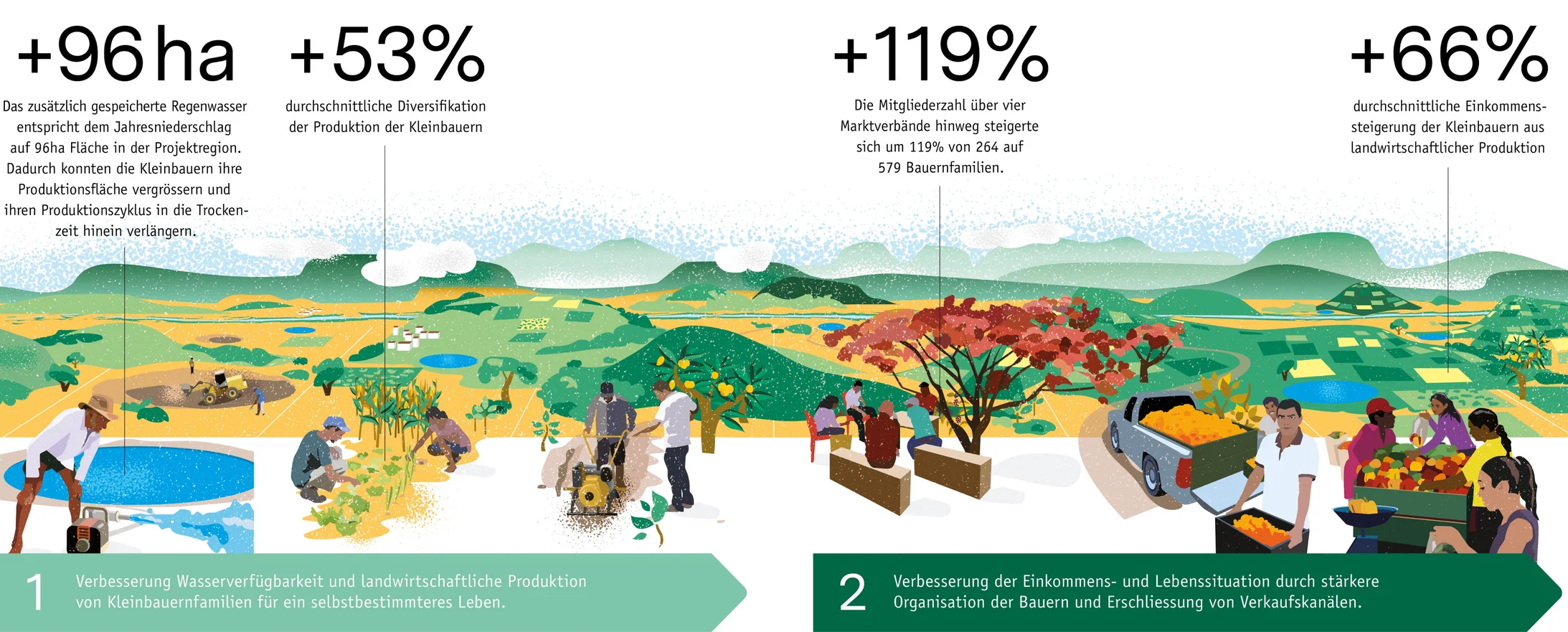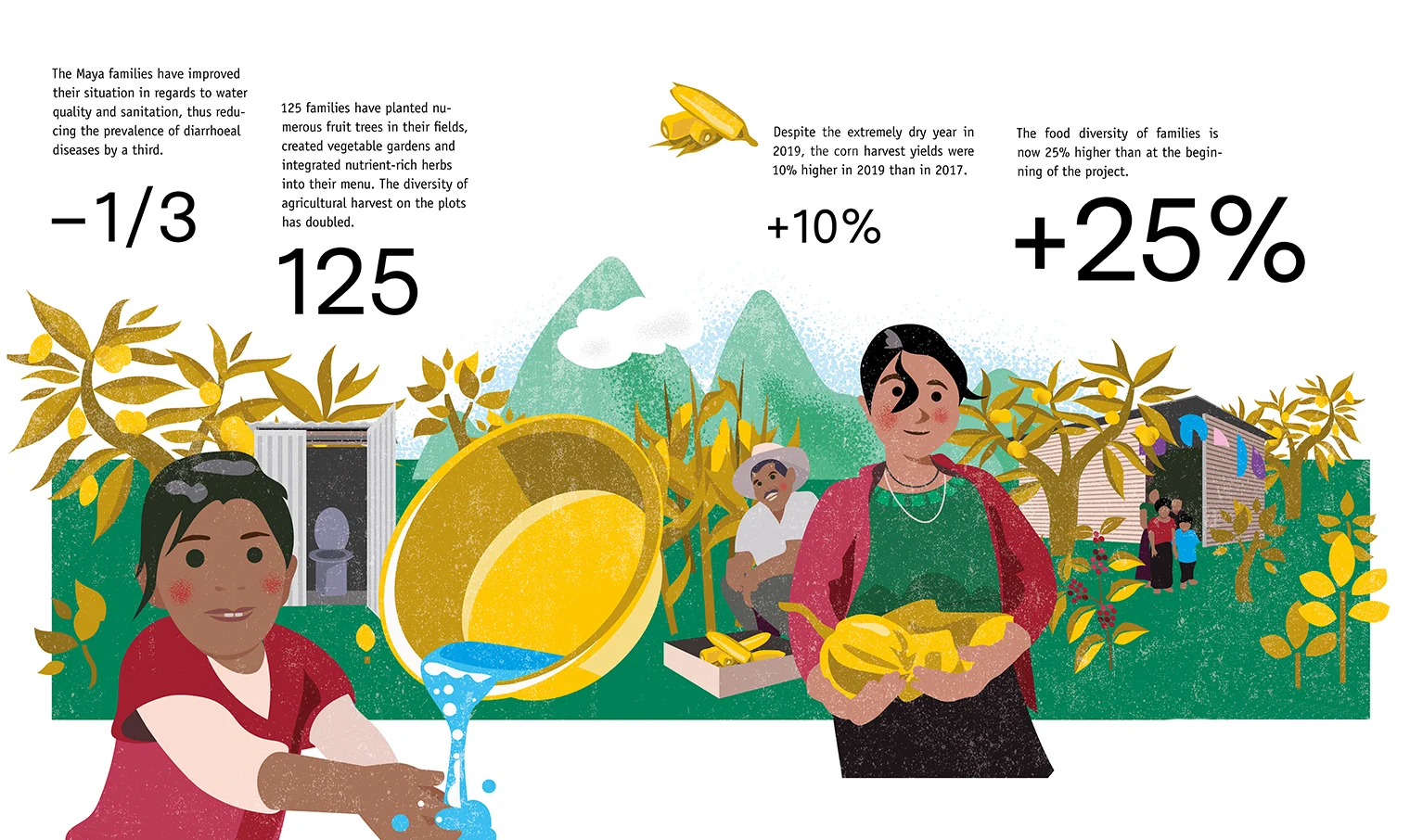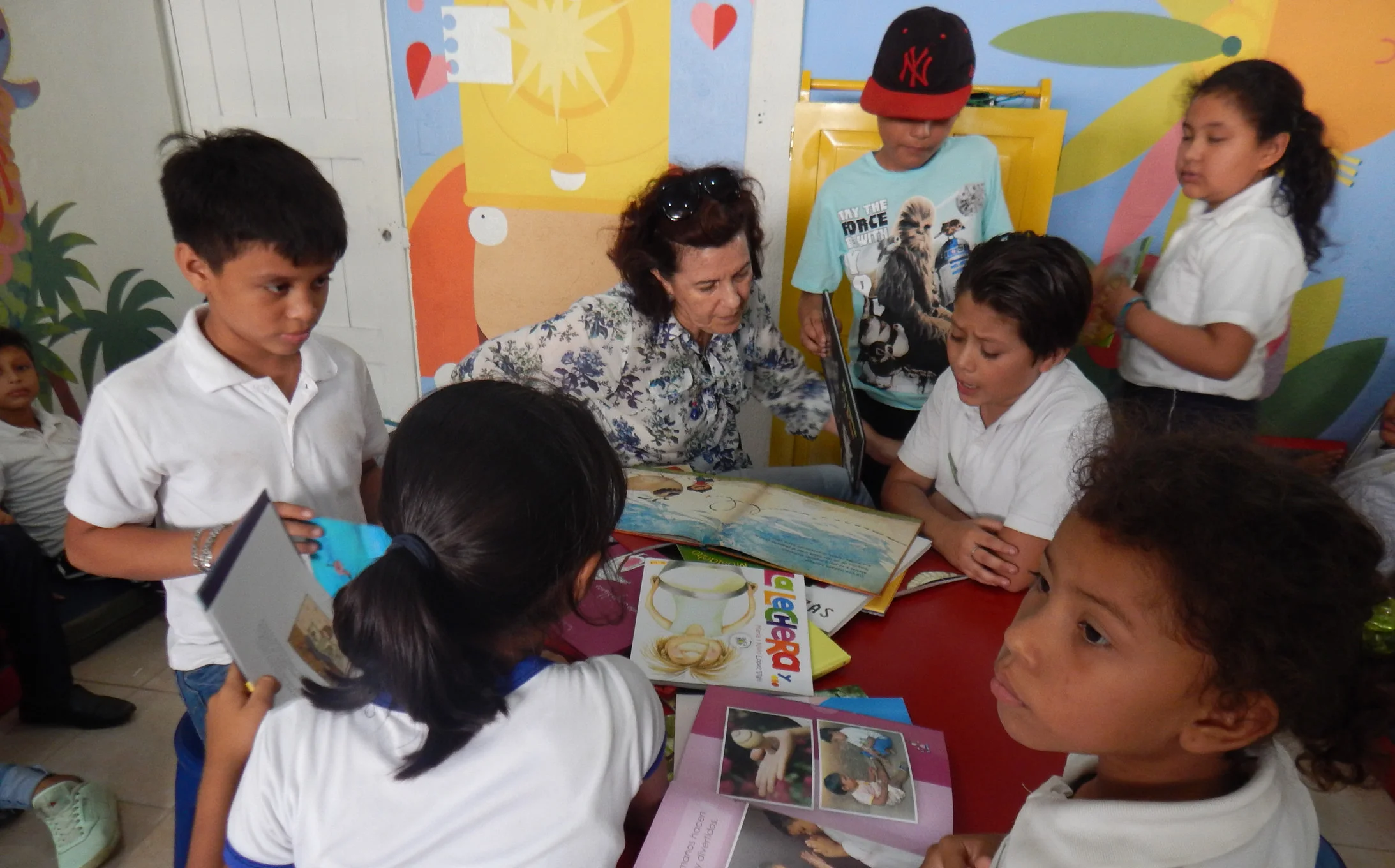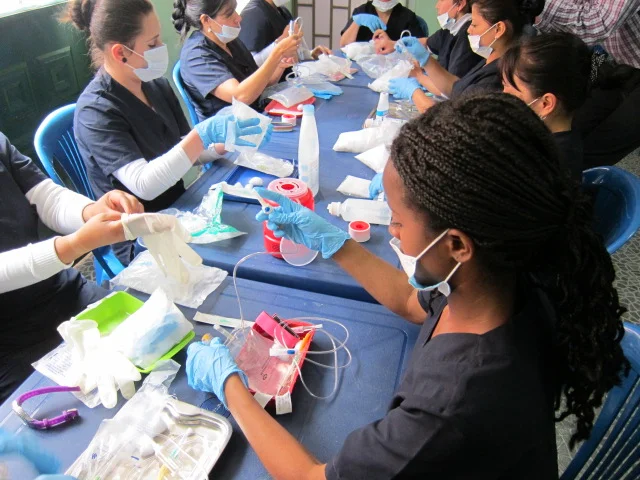Vivamos Mejor has consistently used a monitoring and evaluation system with clear, measurable targets for many years. In addition, we have regularly checked the impact of our programmes by means of independent studies at Swiss and local universities since 2012. This has led to our being the only Swiss aid organisation to win the SDC/NADEL Impact Award for a second time.
Thanks to our impact assessments, we know that children who have taken part in our pre-school programmes achieve significantly better marks than those who have not – even four years after – and are less likely to stay down at school. We can also prove that supplementary psychosocial development work leads to considerably higher completion rates in vocational training projects.
The findings of these impact studies help us to optimise our programmes and thus do more for people in Latin America. The following studies can be found on this page:
Vocational Training Impact Study in Colombia
In 2018, Vivamos Mejor commissioned researchers of the University of Lausanne and the Universidad de los Andes to carry out a Randomized Controlled Trial to understand the impact of our approach combining vocational training with youth empowerment. Youth empowerment in our context consists of psychosocial support, soft skills training, peace-building skills development, and labor market placement.
The study aimed to find out whether this combined intervention would help disadvantaged young adults in their personal development in terms of mental health resilience and better labor market integration. The results indicate that the youth empowerment program offered important complements compared to stand alone vocational education and training:
Positive effects on mental health
Participants of the combined vocational training approach, showed more mental resilience than the participants who only did the vocational training and the control group. During the extreme stress period caused by Covid-19 pandemic, they were more resilient than the rest of the participants.
Positive effects on income
Results show a clear trend that Youth Empowerment program has a positive effect on formal and informal earnings and labor market participation. They make more money, irrespective of the fact whether in the informal or formal labor market.
The results provide the basis to further improve our approach, raise awareness among local authorities and share our experiences with other organisations.
Insight into a Completed Pre-school Programme Impact Study
In 2017, Deborah Kistler, a PhD student at the University of Lausanne, conducted a scientific research study on pre-school programmes in Colombia. She explains the targets, functioning and results of her impact study in a simple and comprehensive way (video available in German).
The impact of 13 years of project work in Brazil
Between 2008 and 2020, Vivamos Mejor implemented 13 projects in Brazil that made water more readily available and improved agricultural production for smallholder families. We also helped to give smallholder farmers access to new sales channels and empowered them to organise themselves as trade associations. To assess the impact of the programme in Brazil as a whole, in 2020 we evaluated the monitoring data gathered over the entire period.
The impact we have achieved has enabled 7,736 smallholders from 90 communities to lead a more self-determined life and has offered them an alternative to migration to the big cities. The evaluation thus confirms the positive results of the independent project impact study conducted by HSG St. Gallen in 2014, which attested to a positive influence on the living standards of smallholder families and improved cost-effectiveness.
Holistic Approach leads to Sustainable Results in Guatemala
A PhD student at the University of Kansas conducted an independent evaluation of all aspects of the Balanced Diet for Maya Children project (2017–2019). The assessment confirmed our holistic approach: the three components of the project – nutritional advice, improvement of cultivation practices and promotion of hygiene measures (described in greater detail below) – had a positive impact on the nutrition and health situation of 125 Maya families in the three village communities of Pajomel, Chuitzanchaj and Laguna Seca.
External Evaluation of the Relevance of our Reading Promotion Programme in Nicaragua
Nicaragua has been in a socio-political crisis since 2018. Many children have direct experience of violence or live in tense domestic conditions. For this reason, in 2019 we launched a two-year project that uses books and story rooms to bring back a sense of normality and structure to 6,700 children particularly affected by the crisis.
An independent local educational expert conducted a qualitative, external interim evaluation of whether our project constitutes a relevant and meaningful offer for children, and whether it has been implemented in an efficient, relevant and effective manner.
Vocational Training Master Study in Colombia
For her master’s thesis at the HSG St. Gallen, student Tonja Iten conducted an economic analysis. On site, she researched not only the usefulness of the “Work for Internally Displaced Women” project in Bogotá for project participants and employers, but also the cost and efficiency of the project. Relevant influencing factors were included in the evaluation. Iten interviewed and compared 25 out of 140 beneficiary women as well as 25 women from a control group.
The result: compared with the income from the intervention, the women’s earnings increased considerably more than those of the control group.
The comparison shows an increase of 93 per cent. The likelihood of being employed increased by 48 per cent. On average, the women were much more satisfied with their job content, wages and social benefits, while the control group saw a slight deterioration in these areas. In terms of a cost-benefit ratio, the project performs above the average, especially compared to studies of other job market programmes in Latin America. Tonja Iten’s study thus confirms that Vivamos Mejor is on the right track and should repeat this form of intervention in similar projects.
